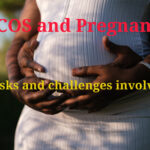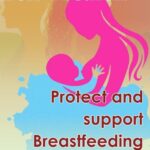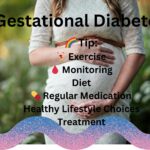Pregnancy and Nutrition: Good nutrition during pregnancy is not just important for health but also for the optimum growth and development of the baby.
Pregnancy is a very exciting period of expectations in a woman’s life. It is a unique natural gift of the women folk. It is very important that you stay healthy and happy during the period. One of the major factors that promote health & well being of the mother & the baby in the womb is wholesome nutrition. Good nutrition during pregnancy is not just important for health but also for the optimum growth and development of the baby.
Your diet has direct influence on the birth weight of the baby. Pregnant women who do not eat well might not gain adequate weight during pregnancy which might result in giving birth of a low birth weight baby (less than 2.5 Kg). Low birth weight babies are at risk of impaired physical growth, mental development and deficiency diseases.
During pregnancy the woman creates a new life. The mother also grows during pregnancy. There is an increase in the overall size of her baby. There is an enlargement of the child bearing organs to accommodate the developing fetus, an increase in the breast tissue to meet the subsequent demands of lactation and an increase in the amount of circulating blood to facilitate the supply of nourishment of the newly built tissues. In order to provide for this rapid growth which includes formation of bone, production of blood and building of muscles, brain and other tissues the fetus needs ready- made nutrients. These are solely derived from the mothers body through her blood stream. Therefore, the mother has to pay special attention of the kind & quantity of food she eats, since this will determine the heath of her baby.
| Warning signs of food deficiency Hair fall, chipping of nails, swelling in the feet especially around the ankles, leg cramps, loss of weight. excessive fatigue, any kind of dizziness. Lack of feeling of the baby’s movements. |
Here are some facts you should know.
- 10-13Kg is ideal weight gain throughout the pregnancy
1st trimester 1-2 kg
2nd trimester 1 -2 kg/month
3rd trimester 2-3 kg/ month
Thus, to ensure adequate weight gain during pregnancy, proper nourishment is a must.
- Morning sickness
- In the first months of pregnancy, when morning sickness is usually at its worst, your tiny fetus requires minimum nutrition. So eat whatever you can retain.
- If you are vomiting, keep yourself hydrated by drinking at least 2 liters a day milkshakes, buttermilk, juices, soups and water.
- If you feel nauseated, try chewing on mint, cardamom, clove or sucking on ginger or lemon,. Avoid supari (beetle nut) and other packaged mouth fresheners.
- Balanced diet during pregnancy
The diet during pregnancy should contain larger amounts of ’tissue building’ and ‘protective foods’ without any great increase in the ‘energy yielding’ foods. The need for energy in a pregnant woman is raised not much above her pre-pregnancy requirements. On the other hand, the woman’s need for body building and protective foods particularly during the latter part of pregnancy is increased to nearly double that of her usual requirements. After a careful examination of the needs of a pregnant woman, nutrition experts have suggested a ‘balanced diet’ for pregnancy.
BALANCED DIET FOR A PREGNANT WOMAN
| FOOD GROUP | FOODSTUFF | A MOUNT /DAY |
| I | Rice/ wheat/ ragi/ jower | 330g |
| Oil, ghee, butter | 30g | |
| Sugar & jaggerry | 20g | |
| II | Milk, curds etc | 500ml |
| Pulses, dried beans, nuts. | 60g | |
|
|
Meat, fish, egg | 20g |
| III
|
Fruits | 200g |
| Vegetables | 350g | |
| Green feafy vegetables | 150g | |
| Other vegetables | 120g | |
| Roots & tubers | 100g
|
Proper nourishment during pregnancy
- Eat a well balanced diet
- Cereals provide energy hence they should form the major portion of the diet. Fats and oils also provide energy but should be consumed sparingly. It is traditionally believed that consumption of ghee (especially in the 3rd trimester) will help ease delivery. Nutritionist’s advice is that excessive consumption of ghee will only make you fat without giving any helping hand during delivery.
- Milk curd & cheese -are the very good sources of protein. 2-3 servings in the form of 2 cups of milk and 1 -2 katories of curd. Meat, poultry, fish, dry beans and dhals, eggs and nuts (Badam, pista, cashew nuts). These are also the good sources of protein required for the growth of the fetus.- 2-3 servings a day.
- Vegetables and fruits are the sources of minerals like calcium and iron and vitamins like vitamin A and vitamin C. Hence they should be eaten in plenty. Green leafy vegetables are rich sources of all vitamins and minerals. Citrus fruits are the rich sources of vitamin C. Consume 3-5 katories of vegetables a day. Vary your vegetable choice between dark green and leafy (spinach) deep yellow or orange (Carrots, sweet potatoes) and starchy (potato) . Fruits – 2-4 servings like 2 bananas, 1 Apple and 1 orange in a day.
- Bread, rice, chapattis and potatoes- 6-11 servings. It is not dangerous to eat chocolates, ice- creams or cakes during pregnancy, providing you don’t consume excessive amounts. Aerated drinks only add calories without giving any kind of nutrition. Hence such foods can be eaten in small quantity and occasionally.
- Eat 3 or more nutritious meals a day and do not skip breakfast.
“You are what you eat” is a phrase that has lot of merit, especially when you are pregnant .Most pregnant mothers get hungry easily and need to eat more regularly as their need for energy (an extra 300 calories a day) and most nutrients increases. Eating 2 regular meals and 2-3 light snacks a day will not only satisfy your hunger pangs but also meet all your nutritional need.
- Eat more of “Nutrient dense” and less of “empty calorie” foods.
Recommended dietary allowance (RDA) refers to the amount of energy (calories) and nutrient which will maintain good state of nutrition in healthy people of all ages .The allowance include a margin of safety to cover individual differences.
Opt for “nutrient dense” foods (packed with essential nutrients) that are prepared with less oil/fat and are less sweet.
Increase food intake
- Whole grains, pulses. legumes, sprouted pulses, leafy vegetables, jaggery, dates, groundnuts, are foods of plant origin having good iron content. Include more number of these in the daily diet.
- Include green leafy vegetables in daily diet right from the beginning as all foliage provide ‘folic acid’ much needed during early months.
- Consume vegetables in plenty. And one seasonal fruit daily.
- Milk, curd, buttermilk, egg, meat, fish are helpful foods during pregnancy.
- Some foods like eggs, papaya etc. causes heat during pregnancy is a misconcept.
- Iodized salt should be consumed as pregnant women require sufficient iodine for brain development of the child in the womb.
- Take plenty of fluids/water. Drink at least 8 cups of fluids a day. Water, milk, fruit juice and vegetable soups are excellent choices.
- Take small and frequent meals.
- Rest: Heavy work should be avoided throughout the pregnancy. Rest (in lying down position) during third trimester is important to enable adequate flow of nutrients from mother to the child.
| Avoid : Artificial sweeteners are strictly prohibited. Monosodium glutamate (Ajinomoto) found in Chinese foods should be avoided. Do not drink tea or coffee immediately after lunch or dinner, as it will reduce the absorption of iron from your food. Try and avoid papads, pickles, salted snacks, potato chips, chocolates, cakes, pastries and aerated/ carbonated beverages. Avoid drugs like painkillers or antibiotics without your doctor’s consent. Don’t drink alcohol or smoke cigarette. Note that cough medicines include alcohol. |
- Eat folate and iron rich foods: Pregnant women need more of folic acid that helps to increase birth weight and reduce congenital anomalies. Green leafy vegetables, legumes, nuts and liver are good source of folic acid. Iron is needed for hemoglobin synthesis, mental function and body defense against diseases/ infections.
Deficiency of iron leads to anemia maternal mortality and low birth weight infants. Plant foods like legumes, dried fruits and green leafy vegetables contain iron. It can be obtained better through meat, fish and poultry products. Iron & folic acid tablets should be consumed throughout the pregnancy.
- Immunization: Immunization of the pregnant woman with tetanus toxoid 5th & 6th months of pregnancy in two doses at an interval of 4 weeks is essential.
Pregnancy and Diabetes
There are some women who are potentially diabetic which is not a bar for having a healthy baby. But always consult your doctor before planning pregnancy and control your blood sugar very rigidly. Have a regular diet, exercise and insulin if necessary for a healthy baby. Visit your doctor and obstetrician whenever you are asked to visit. Your baby has no greater risk of developing diabetes because you had diabetes during pregnancy. It is always advisable to have one or maximum two children at an early age.












